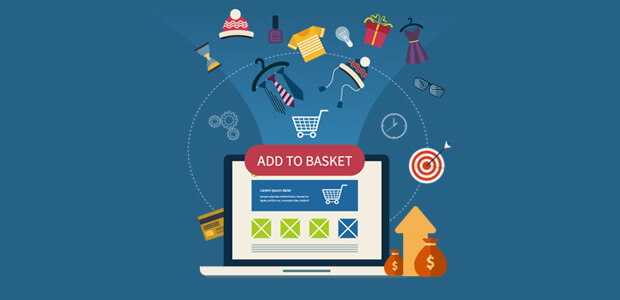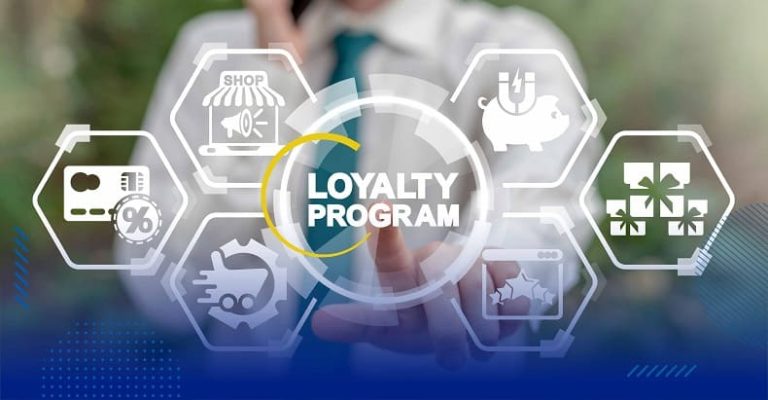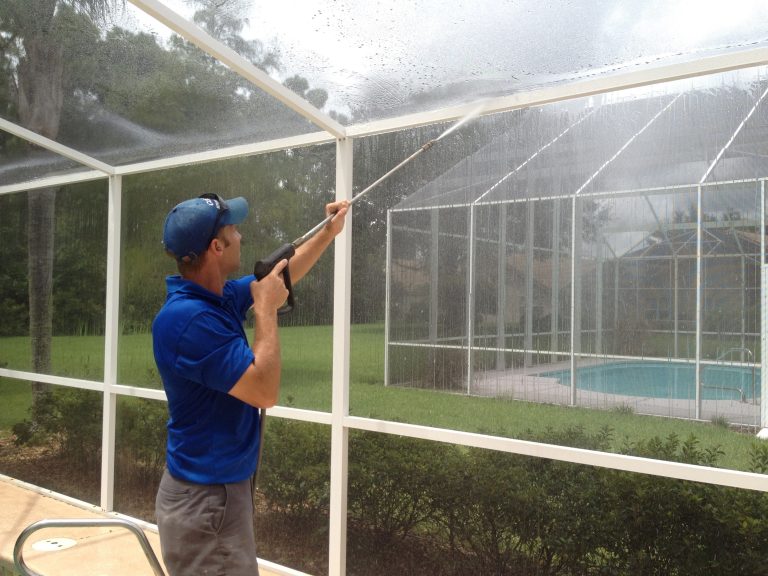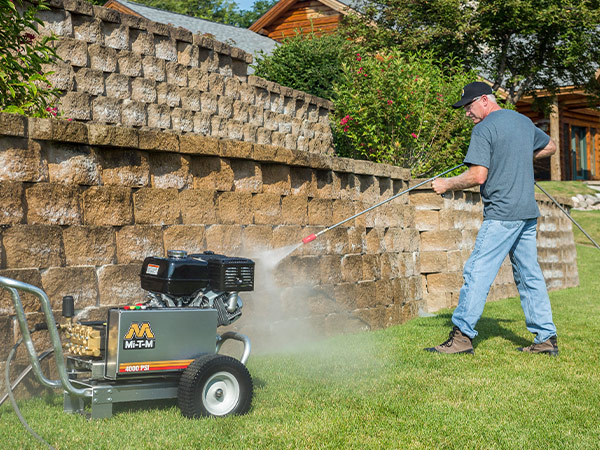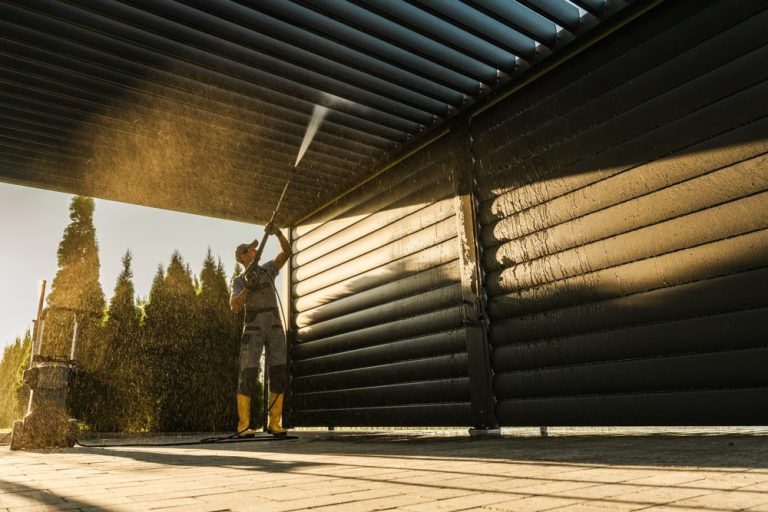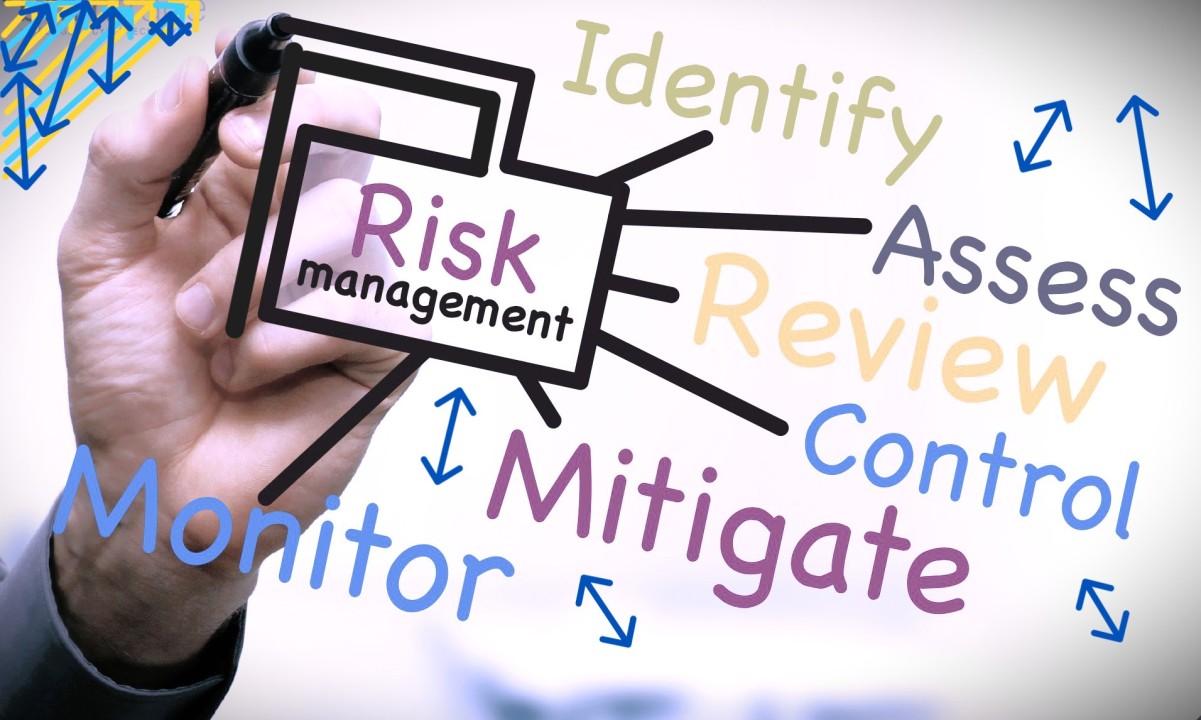
Running a power washing business can be highly rewarding — flexible hours, strong demand, and solid profit margins. But with those rewards come real risks. From slipping hazards to equipment failures and property damage, risk is baked into the job. 😬🧼
That’s why understanding and implementing risk management strategies is essential. Without them, even a small mistake could result in financial losses, legal issues, or serious injury. And the worst part? Most of these situations are preventable with the right systems in place. 🛑💼
In this article, we’ll break down what risk management is, why it’s so crucial for power washing businesses, and how you can protect your company, your team, and your clients. 🧠✅
🔍 What Is Risk Management?
In simple terms, risk management is the process of identifying, assessing, and reducing the potential threats that could harm your business operations. It’s about being proactive, not reactive.
For power washing, risk can come from:
- Physical injuries
- Property damage
- Equipment malfunction
- Environmental hazards
- Legal liability
- Weather-related issues
A solid risk management plan minimizes the chance of these issues — and makes you look more professional in the eyes of customers and insurance companies alike. 📊👷
⚠️ Common Risks in the Power Washing Industry
Let’s take a look at some of the biggest dangers power washers face and why you need a plan for each.
🧍♂️ 1. Slip and Fall Hazards
Water + soap = slick surfaces. If you or a customer slips on a wet sidewalk, the result could be injury or a lawsuit.
Mitigation tips:
- Use wet floor signs and cones 🚧
- Wear slip-resistant boots 👢
- Work in sections to minimize spread
- Dry high-traffic areas immediately
🏚️ 2. Property Damage
Using high pressure or the wrong chemicals can strip paint, destroy siding, break windows, or kill plants.
Prevention strategies:
- Conduct pre-job walkthroughs 🏡
- Take before photos 📸
- Use soft washing when appropriate
- Test chemical concentrations in small spots
- Cover nearby vegetation and outlets
Even experienced pros make mistakes — but smart ones prepare for them. 🧠
⚡ 3. Electrical Hazards
Water and electricity don’t mix. Spraying near outlets, lighting fixtures, or electrical panels can cause shocks or fires. ⚠️⚡
Safety steps:
- Locate and cover all outlets before spraying
- Avoid spraying near overhead wires
- Keep extension cords off wet ground
- Train employees in electrical awareness
🧼 4. Chemical Exposure
Detergents and degreasers can irritate skin, eyes, and lungs — especially when airborne. 🌬️🧪
Precautions:
- Use gloves, masks, and eye protection 😷🧤
- Mix chemicals in well-ventilated areas
- Train employees in proper handling
- Label all containers clearly
Health risks aren’t just about your team — clients and pets can also be affected.
💰 5. Client Disputes and Liability Claims
Even a spotless job can go sideways if a customer thinks you damaged their property or didn’t deliver what was promised. 🤷♀️
Protect yourself by:
- Using written service agreements 📄
- Listing exclusions (e.g., pre-existing stains or wear)
- Offering job walkthroughs before and after
- Documenting everything
Good communication solves problems before they become lawsuits. 🗣️🧾
📋 Key Components of a Risk Management Plan
If you’re serious about building a resilient power washing business, you need to incorporate formal safety and risk practices. Here’s how to do that:
✅ 1. Risk Assessment
Walk through your typical job and list everything that could go wrong — from slippery walkways to ladder falls to equipment leaks.
For each risk, assign:
- Likelihood (low, medium, high)
- Impact (minor, moderate, severe)
- Mitigation strategy
This forms the foundation of your plan. 🧱📊
🧑🏫 2. Employee Training
Make safety part of your culture. Even if you’re a solo operator now, building these habits early will help you scale safely.
Train on:
- Equipment handling
- Chemical safety
- Ladder usage
- PPE requirements
- Emergency procedures
Hold quick safety huddles before each job and enforce standards. 👷🗣️
🧯 3. Emergency Preparedness
Things go wrong. Be ready.
Have a plan for:
- First aid response 🚑
- Equipment failure 🔧
- Fire or chemical spill 🔥
- Client injury or complaint
Keep a fully stocked first aid kit and chemical spill kit in every rig.
💼 4. Proper Business Insurance
If something goes wrong, insurance is your backup parachute. Don’t operate without it.
At a minimum, carry:
- General liability insurance
- Commercial auto insurance
- Equipment coverage
- Workers’ compensation (if you have employees)
Get advice from a broker who understands contractor risks. It might cost a little more, but it could save your business one day. 💸🔒
📷 5. Documentation and Contracts
The more you write down, the better.
Always get:
- Signed estimates and job agreements
- Before-and-after photos
- Signed walkthroughs (especially on large jobs)
- Incident reports for any issues
Documentation is your best defense if a client complains or sues.
🌦️ Weather and Scheduling Risks
Rainy days, snow, wind, or extreme heat can disrupt jobs or make working unsafe.
To manage:
- Build weather clauses into contracts
- Offer rescheduling flexibility
- Use weather apps to plan routes
- Set aside buffer days in your calendar
Being proactive keeps your clients happy and your crew safe. ☔📆
🧠 Real-World Example: Risk Gone Right
“We had a customer claim we cracked their window during a roof wash. But because we did a full photo walkthrough and had a signed checklist showing the window was already damaged, the issue was quickly resolved. That simple habit saved us thousands.”
🧾 A little prevention can protect a lot of profit.
📣 Turning Safety Into a Selling Point
Believe it or not, talking about your risk management practices can be a great marketing angle.
Tell potential clients:
- “We’re fully licensed and insured.”
- “Our team is OSHA-trained and background-checked.”
- “We protect all vegetation and electrical outlets.”
- “We photograph every job and walk you through it before and after.”
Confidence and professionalism make clients feel safe — and that makes them more likely to hire you. 💬🔒
🔚 Final Thoughts
Risk is part of running any business — but in power washing, it’s especially important to be proactive, thorough, and prepared. Building a risk management system doesn’t just protect your company — it gives you peace of mind, impresses your clients, and sets you apart from your competitors. 🧠⚡
✅ Know your hazards
✅ Train yourself and your team
✅ Insure your operations
✅ Document everything
✅ Plan for what could go wrong — before it actually does
In this industry, safety isn’t optional — it’s what smart business owners do to protect their growth, their brand, and their bottom line. 💼🛡️
